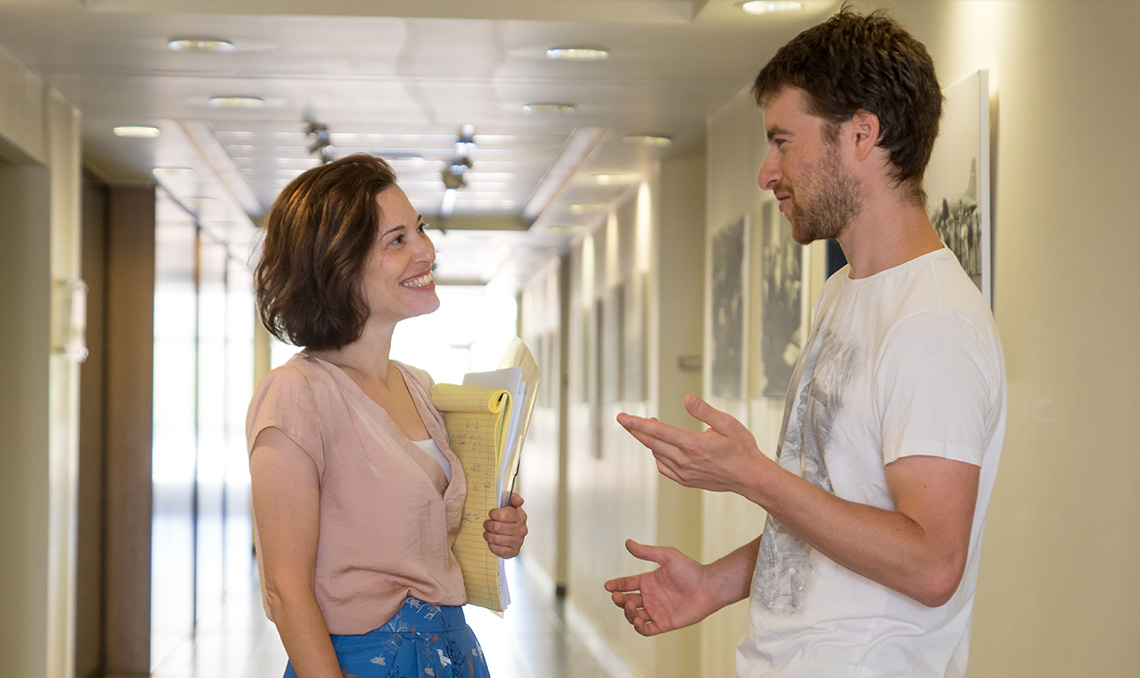“A Strike Force for Israeli Society”: The Shalem Approach to Alumni Relations

Odelia Yatzkan, Shalem’s director of innovation and alumni relations, explains that when the Alumni Organizations Forum—Israel’s only association of senior professionals in the field—was established nearly seven years ago, Shalem College was the very first institution of higher education to join. And to her, this makes perfect sense.
“The idea of maintaining an active alumni network is fairly new in Israeli academia, which traditionally hasn’t attached special value to maintaining a connection after graduation,” she says. “Shalem was really a pioneer in this area. We recognize that our alumni are the key to making good on our vision for advancing the Jewish and democratic character of the state, so from the start we made investing in their relationship to us and to each other a top priority.”
It is this last point that sets Shalem’s approach to alumni relations apart, and which Yatzkan—today the Forum’s board director—emphasizes to her colleagues, many of whom represent the most significant fellowship programs in Israel. And now, Yatzkan is happy to point out, their number also includes several other Israeli colleges and universities.
“The Shalem view is that our graduates are not just individuals doing important things in their own fields, but a kind of strike force for society, sometimes operating in parallel and often in collaboration,” says Yatzkan. “Together, they’re a powerful network.” Indeed, of Shalem’s more than 200 graduates to date, a sizeable number have gone on to occupy key positions in sectors with the potential to determine the character and future of Israel. They include, for example, senior advisors to Israel’s ambassador to the United Nations and to Israeli municipal leaders who seek to advance large-scale initiatives; the editor-in-chief of an intellectual journal for the Haredi community; the director of an elite leadership program for Arab Israelis; and the founder of an organization for economic advocacy.
To achieve this level of impact, however, it’s not enough for students to share a transformative educational experience, though of course that’s the foundation on which everything else is built. Yatzkan insists that institutions such as Shalem need to help develop their sense of community and mutual purpose long after their studies are over. Fortunately, in Shalem’s case, alumni seem to have the community part covered all by themselves.
“My department recently analyzed the Shalem alumni group on [the group messaging application] WhatsApp to see what kinds of issues they’re bringing to each other and how they’re interacting,” she says. Far and away the most popular words are ‘thank you.’ Someone needs help, advice, a connection, anything—his fellow Shalem grads give it, period. They feel a sense of responsibility for each other that’s unique and very encouraging.”
Of course, Shalem grads know that at those really critical junctures, Yatzkan herself is just a text away.
“Just the other day, two alumni wrote that they want to speak about negotiations for a new position. When they’re faced with professional challenges, they know that between the college’s Impact Office, Shalem’s involved board, and the entire college faculty and administration, we can find the right person to grant them the guidance, skills, and support they need.”
A moment later, she adds, “That same day, two other grads wrote to say that they had become new parents. Whether it’s the most challenging thing in their lives or the happiest, we’re really glad that they turn back to Shalem.”



